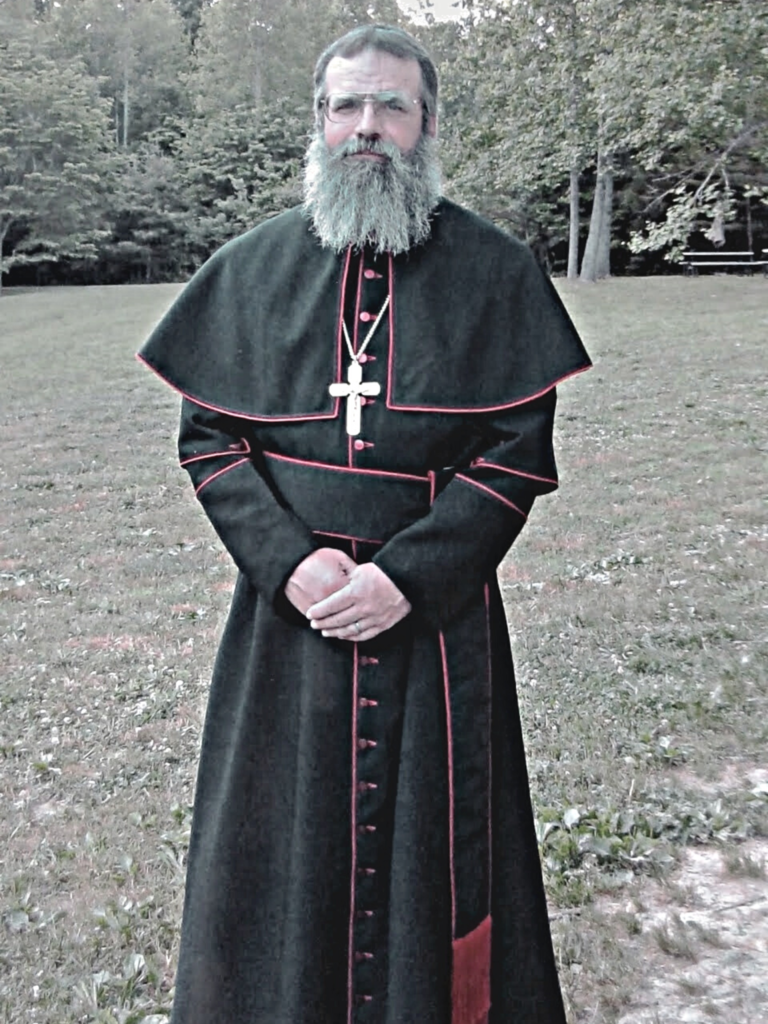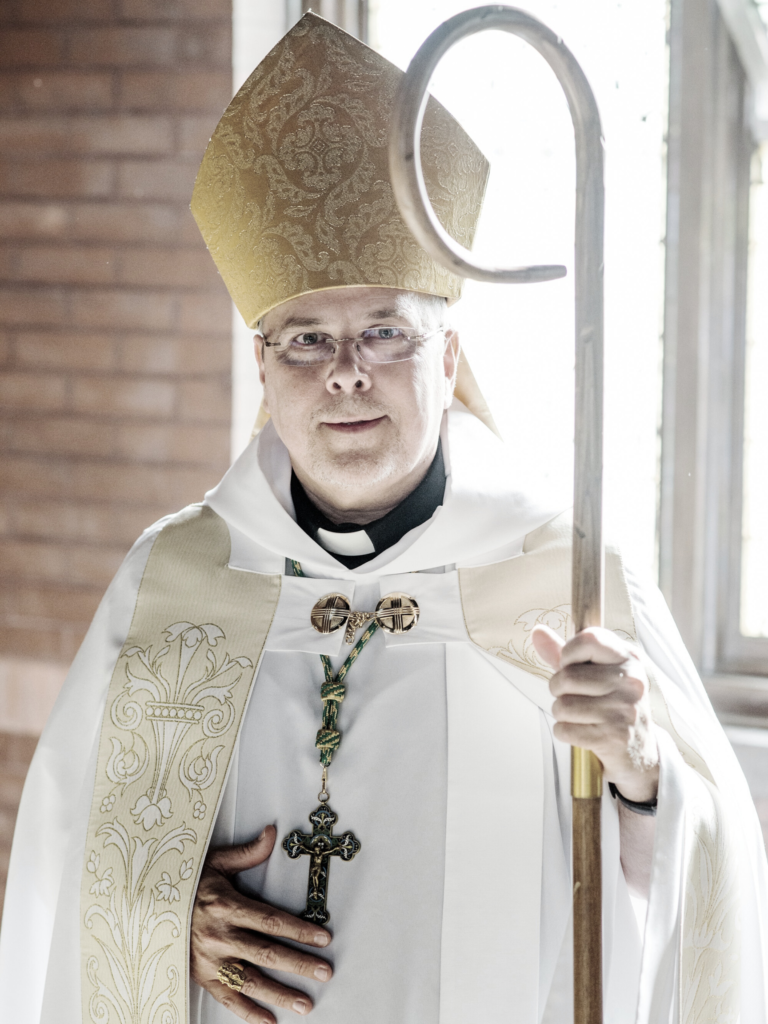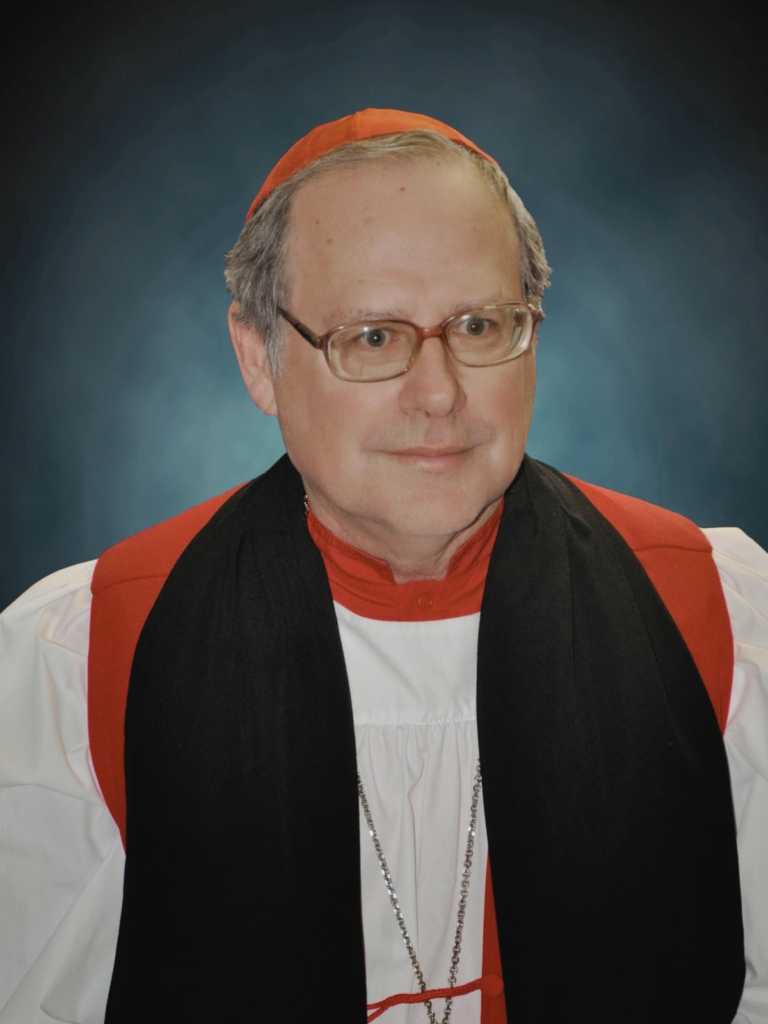The Missionary Society of St. John the Evangelist ( “the Society” or “the MSJ”) are religious: lay, clergy, or those who have committed themselves to a particular calling or ministry who have at the heartbeat of their daily lives the two-fold essence and ministry of the Church Catholic within the Anglican Tradition: Unity and Mission. The completeness of this vision is 1) the work of Unity requiring daily repentance, worship, and intercession as preparations for ecumenical dialogue, and 2) the work of Mission requiring evangelization in both word and deed (1 John: 3-4), pastoral care, and work among those whom the institutional churches often overlook. The completeness of this vision keeps the members of the Society grounded in the Scriptural Word of God, in the full sacramental life of the Church, and in a daily experience of Christ present in their lives through the multifaceted ministry of the Holy Spirit, both personally and corporately. The members of the Society commit their lives to an evangelical fervor for the Catholic Faith, empowered by the Holy Spirit, recognizing that this has been the historic ministry of the Church, God’s consistent pattern of revival and renewal from the Day of Pentecost, through the ages, to the present. (MSJ Preamble).

Leadership:

The Most Rev. Fr. Bob Lemmon is the Father General of the Missionary Society of St. John the Evangelist (MSJ). He earned his B. A. at Mt. Vernon Nazarene University (1991) and his M. Div. at Asbury Theological Seminary (1995). He has served as pastor of Christ the King Anglican Church since its founding in 2000. He and his wife, Mary are blessed to have lived in Casey County since 1997, where they home-school their children. As Father General, he oversees the ministries, organization, and Rule of the missionary society.

The Right Rev. Alberto Morales, OSB, DD is the Ninth Bishop of the Diocese of Quincy and serves as the Episcopal Protector of the Missionary Society of St. John the Evangelist (MSJ). After the Diocese of Quincy joined the Anglican Church in North America (ACNA) in 2009, the diocese voted Alberto their next bishop, and he was enthroned in 2010. With a deep passion for building the Kingdom of God, the bishop loves helping start new congregations. We are all missionaries and Bp. Morales constantly reminds laity and clergy alike of that shared role.
The Rt. Rev. Frederick G. Fick, MSJ of Blessed Memory was the first Father General of the Missionary Society of St. John the Evangelist (MSJ), which was founded on the Feast of St. Nicholas on Dec. 6th, 2006, with its original Rule of Life being drawn up on October 27th, 2009. From its founding, Bishop Fick was an incredible leader, loved and respected by all. His memory and legacy continue through the MSJ and its members.
“Eternal rest grant unto him, O Lord, and let perpetual light shine upon him. May he rest in peace. Amen”
His own words sum up the kind of leader he was and the vision and faith of the Missionary Society:
“The security of the future of the Church at large, all the way down to the smallest hidden community, rests in the power, knowledge, and love of God, the Holy Spirit, who is in union with the Son, the Lord of the Church and the Omnipotent Father, whose will it is that all might come into the blessed unity of the Most Holy Trinity. There we place our trust.”
– The Rt. Rev. Frederick G. Fick, MSJ – Feast of the Holy Innocents, Dec. 28th, 2013

History
The Missionary Society of St. John the Evangelist (MSJ) began in 2006 as a way of sustaining existing ministries with Episcopal oversight. Furthermore, the society provided a united framework under Bp. Fick, whereby its members could continue to seek their place within the greater Church Catholic. In the years following the MSJ’s founding, (not by intention) many others adrift found in MSJ a place of safety, strength, and community with episcopal oversight. When the MSJ was graciously received into the Missionary Diocese of All Saints (ACNA), one part of its purpose was fulfilled: It had found its place in Christ’s One Holy Catholic and Apostolic Church. As such, the MSJ has been able to concentrate its work, supporting and encouraging its missionaries in their individual ministries, as well as providing a point of entry for those who are still on a journey. The primary purpose of the MSJ in the present is to support and sustain the existing ministries/missions of individual members and communities, as well as to provide structure and oversight to new missions and ministries as the Holy Spirit leads. This is accomplished through regular regional chapter meetings, our Annual Assembly, and visitation from the Father General. These meetings afford opportunities for worship, prayer, fellowship, continuing education, and the strengthening of individual commitment to the Rule of Life, which in the Benedictine spirit exhorts vowed MSJ members to a life of prayer and work.
Ministries of the MSJ:
The Missionary Society of St. John the Evangelist is a vowed religious society, which provides a context for a variety of different ministries. There are currently 60 vowed and Companion members, both lay and clergy, serving in 5 Chapters of the MSJ: Wisconsin/Northern Illinois, Kentucky, Michigan, Ohio, Arizona, and Texas, together with other members in Indiana, and South Carolina. The Society is further accompanied by numerous “Friends ” of the Society, who while unable to commit to the Rule of Life are nevertheless supporters of the MSJ both materially and spiritually.
Examples of MSJ ministries include but are not limited to the following:
Parish Ministries: MSJs who fulfill their mission as active participants in established parishes, adding strength, and bringing their missionary consciousness to everyday parish and community life.
Community Ministries: MSJs who serve in communities or houses, showing compassion and evangelization in a specific locale.
Interior Ministries: MSJs whose mission is prayer for the Society, the Church, and the World, or those who operate Retreat Houses for the MSJ and others who need rest and “re-creation” for their work as missionaries.
Compassion Ministries: MSJs who serve, as solitary individuals, a particular need, such as hospice chaplains, prison chaplains, underground ministries in public contexts, nurses, teachers, etc.
Educational / Formational Ministries: MSJs who work in teaching, spiritual formation and/or direction, or those who offer support to other teaching or formational ministries.
Vocational Ministries: MSJs who bring the missionary charism to bear in their workplace recognizing that every workplace is a mission field. These members strive to be salt and light in their own “secular” vocation while participating in the life of the local parish or community. Every layperson is called to be a vocational missionary.

Affiliations:
The MSJ is canonically resident in the Missionary Diocese of all Saints (MDAS), a non-geographical diocese within the Anglican Church in North America (ACNA). The MSJ is also a member of Forward in Faith North America (FIFNA).